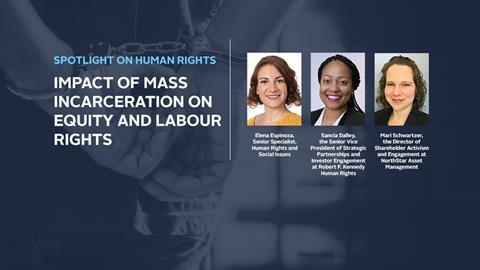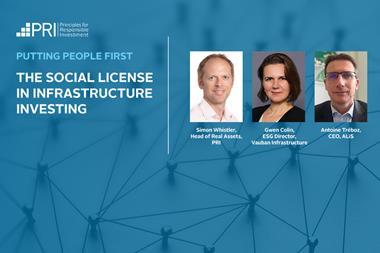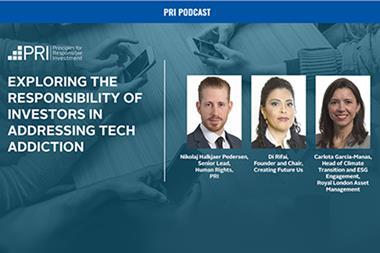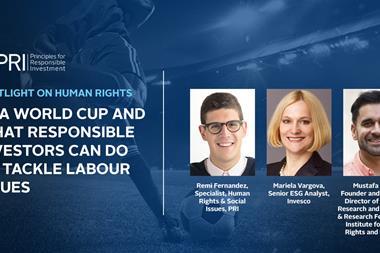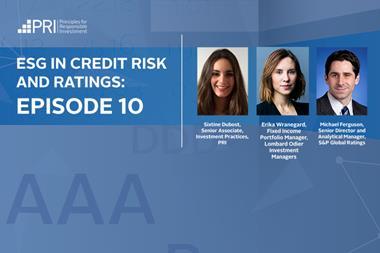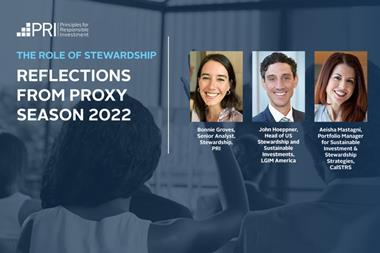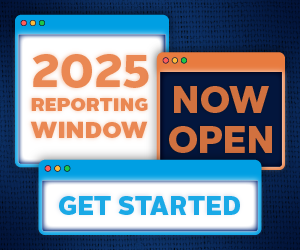Find the full transcript here
SPOTLIGHT ON HUMAN RIGHTS: IMPACT OF MASS INCARCERATION ON EQUITY AND LABOUR RIGHTS
Elena Espinoza
Hello, and welcome to the PRI podcast and the latest episode in our Spotlight series on human rights. My name is Elena Espinoza, and I’m delighted to be your host today. In this episode, we will be talking about the importance of action in the global prison system, highlighting the perspectives of the effected stakeholders, as well as the investors. Over 10.4 million people are incarcerated worldwide, severely limiting equity and access to opportunities and resources, not just for people in prison, but also for their families and communities in care impacts this advantage people and minorities the most. The treatment of these people in the criminal justice system is a topic that consistently comes up in human rights circles. We often think that governments and policy makers should be the ones dealing with this issue. And we fail to grasp the link with businesses and investors. Businesses are involved in the prison and system in the form of privately run precincts, but more so through government contracts to run public precincts and through contracted precinct labour for company supply chains, however, lack of visibility and traceability makes it difficult to assess which companies are selling products and services through the use of precinct labour.
Today I’m joined Sancia Dalley, the Senior vice president of the Strategic partnerships and investor engagement at Robert F. Kennedy Human Rights and Mary Schwartzer, the Director of shareholder activism and engagement at North Star Asset Management. So let’s kick off this episode with a bit of context about mass incarceration and its impact on people. So, Sancia, thank you so much for joining us today. Could you provide us with some insight on mass incarceration and its implications?
Sancia Dalley
Thanks Elena. It’s a pleasure to be here with you today Elena and Mari. The US cages more people in its jails, prisons and detention centres than any other country in the world. It disproportionately harms communities of colour who make up about 30% of the US population, but account for 60% of those who are imprisoned, plus it costs taxpayers billions of dollars annually. So, in terms of numbers, we know that there has been a 700% increase in the number of people in our country who have been incarcerated since 1970. And we now spend nearly 300 billion dollars annually to police communities and incarcerate about to 2.2 million people.
Elena Espinoza
Well, so that’s definitely an issue that comes at a big cost for society, but this isn’t just a government issue, is it?
Sancia Dalley
No, it isn’t, you know, you’re exactly right. So much of America doesn’t understand the full picture. Private companies that supply goods to the prison commissary, for example, or that provide telephone service for correctional facilities, bring in almost as much money, about 3 billion annually as governments pay private companies to operate private prisons. Getting investors to divest from private prison, as well as to not fuel the growth of prisons writ large has been a major focus of us at Robert F. Kennedy human rights through our investor engagement work. And, you know, an example of this is a state of Alabama last year, a group of investors, business leaders, social justice advocates, successfully pressured Barclays and key banks, a number of others to pull out of a 630 million taxable municipal bond offering by the Alabama department of corrections. That would have seen two new prisons built by the private prison firm Core Civic in 2021. But we know that there is a lot more to do so, yes, it’s not just a government issue. It’s an investor issue. And it’s a societal issue
Elena Espinoza
Now onto the more human side of the issue. We hear that human rights and the social implications of mass incarceration have historically been and continues to be a major problem in the US and of course, the rest of the world, so to flesh that out Sancia, in your opinion, what are some of the key human rights and social implications related to this?
Sancia Dalley
You know, prisoners in the United States are overwhelmingly black, brown, you know, indigenous people, people of colour, and they have systemically been denied basic human rights outside of prison walls, let alone inside prison walls. A vast majority are held in jails and prisons, pre-trial, meaning they haven’t even been tried, let alone found guilty of their crimes. The rising cost of providing for a massive prison population has not only highlighted these racial disparities, but driven money away from investing in social infrastructures. You know, and so the social inequality produced by mass incarceration is sizeable and enduring for a number of reasons. It’s invisible, it’s cumulative and it’s intergenerational. There’s a societal cost associated with incarceration, lots of earnings, adverse health effects and the damage to families and communities of the incarcerated, you know, and, and simply put, it’s just bad financial investments. And, so this is a major issue for us.
Elena Espinoza
And given the human right implications, you just mentioned, do you think that prison labour is always a bad thing or can it be done in the right way?
Sancia Dalley
You know, Elena, that’s a loaded question. I think first things first, let’s be clear. America’s incarceration model is built on a history of slavery and racist policies. It is rooted in extraction and exploitation of cheap labour for profits and has very little to do with rehabilitation. Prisoners are often put in car, and you know, extractive situations under the guise of work. They’re not paid a liveable wage, often earning negative net pay, or, you know, 5 cents on the dollar. If they’re lucky after payments are taken out for various things, including room and board. So on top of this, there are met with tremendous amount of abuses at the hands of wardens and correctional officers overseeing these work programs. So, prison work, isn’t just another battlefield in the fight between labour and capital. However, justified that might be work is more than wage.
It’s an expression of humanity, and that’s especially true in a prison system as well. You know, one way to protect prison workers is through unionization, establishing physical and organisational safeguards for inmates and workers that really will enable them to establish, protect for themselves where they can negotiate for themselves. Those are some of the things that could happen in the context of our prison system that might lean towards a more justifiable way of thinking about prison labour. But I think it’s important to remember that this model is already built on something that was inherently bad.
Elena Espinoza
Thank you, Sancia. I think that’s an important clarification for investors and speaking of investors, we have mentioned that institutional investors do have a role to play, but they also experience challenges in addressing human rights issues. So taking a step back, Mari, welcome to our podcast today. I wanted to ask you first, why do you think responsible investment matters to investors?
Mari Schwartzer
Thanks Elena. First of all, let me just start by saying how much I appreciate that. You’ve asked me and Sancia to join you to discuss this topic today. And I also think I should start by giving a little background on how we engage in this work. North Star asset management is a socially responsible investment firm based in Boston, Massachusetts, USA. We were founded in 1990. We’ve been dedicated to socially responsible investing since our founding and have been actively engaging companies in our client portfolios for over 21 years. Each year, we conduct dialogues with portfolio companies on a wide range of issues to generate solutions related to race and gender economic inequality, human rights, environmental justice, and sustainable governance. Our CEO founded North star because she found herself constantly being the only woman on the trading floor and often won a few people who wanted to go beyond financial metrics when considering portfolio companies.
After starting north star, it became clear to our CEO that divestment or negative screening alone simply wasn’t enough in order to make change and protect client assets. We needed to take an active role in engaging our portfolio companies. And I came to this work when I joined North star in 2008, I was really drawn to this idea that you brought up about the fact that shareholders in corporations, just by the act of owning stock for a certain length of time could bring up challenging questions. And I believe we have a responsibility to do this. Companies have so much influence and power and shareholders are able to use their rights of ownership to generate dialogues that can benefit a, a wide range of stakeholders, including the company and fellow shareholders, but also those that are affected by the company’s actions, but either don’t have a voice or aren’t heard our clients often join our firm specifically because of our views on ESG issues, but also because of this commitment to the greater good, as well as to protect and grow their assets.
One good example of the responsibility of investors when it comes to mass incarceration is the topic that I’m here to discuss with you today. I’m sure we’ll get into the details in a minute, but North star’s work on the issue of prison labour was spurred both due to client interest, but also when one of our portfolio companies was suddenly in the news because it had been very publicly criticised for selling products made through prison labour. From all accounts, we saw the company appeared caught completely off guard by this news. It faced protests and widespread condemnation, which is obviously never good for the reputation of a company.
As Sancia mentioned earlier, when people work in prison industries, the average pay can be as low as $1 or less per hour. And they only get to keep usually a very small percentage of that gross wage. In some states, incarcerated people are forced to work, but are not paid. As an investor, some of the risk comes from the opacity of this industry. It is very hard to know what products are made through prison, labour, and where they go. So, we’re talking about potential reputational supply chain and human rights risks for companies that are found to benefit from this system. From the investor perspective, there are clear questions around ethical and financial risks related to prison labour, but the system is so opaque that the only way for investors to know what their exposure is it’s to ask questions related to the issue.
Elena Espinoza
So, despite person, labour being legalised in the us reports suggest that wages are usually low and, in some cases, working conditions can be poor and unsafe. So could you give us some context on what prompted North star asset management to look into this issue?
Mari Schwartzer
Absolutely. North star started engaging in portfolio is on prison labour in 2018, but we began with a deep research project on prison labour. After that portfolio company that I mentioned earlier was launched into the news about this issue that made us realise that we didn’t really know what exposure our portfolio had to products made by incarcerated people. Our position is that mass incarceration is inherently coercive. So, while we support the idea that people in prison should have the opportunity to fill their time with meaningful work and develop skills, we also believe that people should be fairly compensated, able to unionise, work under labour protections and have the ability to decline work if they choose to. But unfortunately, most people who are working in prison simply don’t have those rights and privileges. So, we knew it would be very important to most of our clients that we understand the space better.
So going back to that research, I think it’s common at least here in the United States to grow up with this image of people in, in prison hammering license plates, which is actually a product that’s made in prison, but we realised in our diligence process that prison made goods were much more expansive in variety. Not all states allow prison made goods to be sold on the open market, but in those that do, we found advertisements for items such as printing and signage, call center services, building materials, furniture, agricultural goods, dental, and obstacle products, cabinetry, TVs, and even motorcycles and lobster farming. Many of these could lead to useful skill development, but our research also showed many accounts of dangerous working conditions, inappropriate behaviours, and policies of the people in charge, incredibly low wages that we think frankly are taking advantage of this captive population. And the way that we feel is most effective for engaging portfolio companies in general is, is through a process called filing a shareholder proposal, which is when you make a request as a shareholder to the company. And it often will actually show up in the proxy statement. So it gets voted on at the annual meeting.
And what’s most important to this process is not only in education of shareholders, if it does make it to the proxy, but it really opens a dialogue for conversation, an opportunity for conversation with a company. When we looked at our portfolio companies, we asked ourselves, which might be the most likely to be exposed to this issue, given that incarcerated workers are paid so little and that agricultural products are well known to involve prison, labour off price and grocery retailers were among our first engagements. We also noticed that a lot of the products that were made were industrial, or construction related like hard flooring tractor seat components and wiring harnesses for some home electronics. This led us to engaging a home improvement retailer on this issue.
Unfortunately, the biggest challenge that we face as investors were doing this work is tracing in the supply chain so far. We found it to be nearly impossible for us as investors to follow products or components from production or harvesting all the way through the tiers of a supply chain to the end user. So, we can’t really know what the risk is. And we turn to the companies themselves to take action steps. In our shareholder proposals, we ask companies to audit their own supply chains, to identify instances of prison, labour, or gaps in their policies and procedures that could allow for prison labour to happen undetected.
Elena Espinoza
So, digging in even a little bit deeper, what are your views on the commonly perceived idea that fiduciary duty might not allow investors to?
Mari Schwartzer
Well, Elena, we consider it a fiduciary duty to our clients to consider a full range of issues. When we’re looking at a potential investment for their portfolios, that includes financial as well as environmental, social or governance factors. But we also consider it important to lead these engagements that I’ve described that hold companies accountable for their actions and policies, not just because of the moral and ethical reasons, but because they make prudent financial sense as well. I can give you one quick example to kind of demonstrate what I’m describing. One of our first engagement was in the early 2000s, and it was a shareholder proposal that we filed with a large financial firm related to its subprime lending practices. We asked the company to link executive compensation with progress and addressing predatory lending behaviour. Our goal was to press the company to consider the connection mean its decisions, and the long-term impacts on the community and the people affected by these practices.
The idea here is that the company’s impacts on what’s around its communities, families, the environment society cannot be separated from the company’s own long term prospects for this firm and others we can assume, or at least I assume that the profit motive was top priority, but from our perspective, they failed to consider the so-called social issues that could affect their profit. Later in that decade, the company ended up settling predatory lending charges for hundreds of millions of dollars. And of course there’s the 2008 financial crisis that involved issues of subprime lending. So, there were always these clear financial risks and obvious moral concerns really to subprime lending. But I really have to wonder, and I do wonder what would’ve changed if the company had taken our engagement more seriously,
Elena Espinoza
And now almost coming to an end of our podcast, I wanted to go back to you and ask you then what would be your call to action for investors?
Sancia Dalley
You know, Mari brings up some very good points and it’s, it’s great to see well here, and see an action, a firm like north star taking some of the steps that they take, because those are some of the things we are looking for investors to actually do. I think one thing we want investors to rethink this notion fiduciary duty in our current socio-political and economic environment. It simply isn’t just profits at all costs, as the social protests of 2020 highlighted. And certainly, the COVID pandemic has, has highlighted at RFK human rights. We are, are fortunate to be both an investor with a small endowment, but an investor network that has engaged asset managers and asset owners that control upwards of 6 trillion of assets on management to take some of these steps. And one initiative we’re working on now is around this Alabama project where the state of Alabama recently announced its intention to move forward with its plans, to use 400 million of COVID relief funds to build new prisons and renovate others as part of a massive $1.3 billion boondoggle.
And with our investor, circle towards decarceration and newly formed entity of activists, investor activists, we are saying companies and investment institutions can start here first. They can commit to stop financing the growth of incarceration and implement this in their private and public financing strategies. As the markets have been clearer and a treasury to the US treasury to, you know, is the time to grow the chorus, decrying this move. We want investors to actually deploy the money’s committed in the summer of 2020 to real social investment projects consider investing in clean water and sanitation services consider investing in new business that provide technological access and software to communities impacted. Think about investing in public education. Think about investing in skills, training and re-entry initiatives, think about investing in affordable housing. That’s what we’re asking investors to do. And this is a smart group of our community, of our society. These are people who depend on data to guide their investment decisions. So, you know, we challenge investors to use that data and data that matters to invest in solutions that actually yield excellent financial and social returns.
Elena Espinoza
And Mari finally, what is the one thing you personally want to see change in the investment industry with regards to human rights issues?
Mari Schwartzer
Well, there’s so much we could talk about and you great points for Sania, which I really appreciate, but I can give you two really specific actions that the listeners could take. The first is that we welcome everyone here, listening to the podcast, to talk to their portfolio companies about prison, labour, engage with those portfolio companies directly and ask questions, ask them what other and how those companies monitor and seek out instances of prison, labour in their full value chain. When North star initiates dialogues with companies in our client portfolios on prison, labour, and a wide range of other issues, companies often tell us that they haven’t heard from other investors on these sorts of concern, but we know that many of our peers are thinking about similar problems. So we know the ideas are out there, but our colleagues at other firms just aren’t necessarily asking their portfolio companies about these issues.
But when we, as investors who care about people, the environment communities, in addition to profit, ask our portfolio companies, these thought-provoking questions, it supports everyone’s work on these issues. So that’s my number one is engage your portfolio companies, ask them questions, including on these sorts of issues that go beyond financial metrics. And second, if you can’t engage directly, or in addition to, in engaging directly with those companies, my suggestion and request is to please vote your proxies and support shareholder or proposals that are pushing forward these engagements. For anyone using a proxy advisory service, highlight the priorities that matter to you and your clients, and make sure that whoever votes your proxies actually follows your wishes. Follow up with them, see how they voted. See if it aligns with what you were looking for. These issues really matter. And we would really appreciate shareholder support whenever they make it to the proxy. Cause there’s a lot going on in dialogues with the companies and shareholder support is often a part of the continuing dialogues that we’ll have over the years.
Elena Espinoza
Sancia and Mari, thank you so much for your time and insights. We hope to see greater investor action to address human rights issues on mass incarceration and prison labour. So that brings us to the end of this episode. Do stay tuned for our next episode on leadership in listed equity with PRI’s Michal Bartek. And remember if you like this episode, please do rate and subscribe for more information on responsible investment, visit our website, www.unpri.org.


